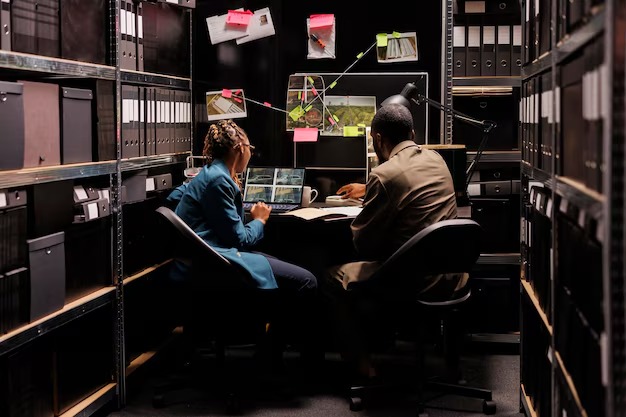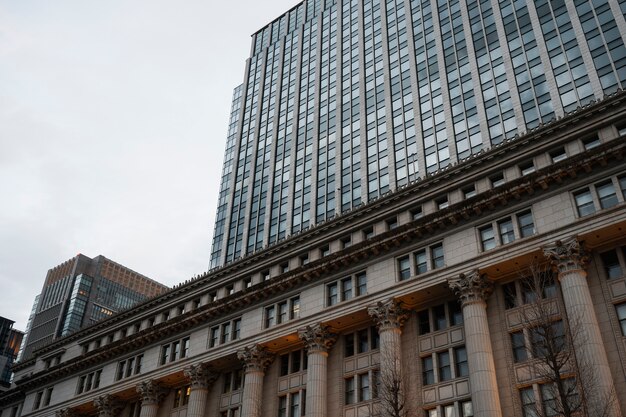
Understanding the Risks of Class Action Lawsuits in Criminal Referral Edition Cases
Understanding the Risks of Class Action Lawsuits in Criminal Referral Edition Cases
The landscape of legal recourse often intertwines various individuals sharing a common grievance, especially when addressing significant infractions. This domain encompasses a spectrum of complexities that emerge when numerous parties unite to pursue redress against perceived injustices, particularly those connected to alleged wrongdoings within the justice system.
These collective pursuits frequently present a unique set of challenges and uncertainties. Participants may face unexpected repercussions, as well as the inherent difficulties associated with navigating the legal framework. While the motivation behind collaboration can stem from a desire for justice, it is essential to recognize the multifaceted nature of such endeavors.
Moreover, as individuals engage in these collective pursuits, they must remain vigilant about the potential pitfalls that could arise throughout the process. Each participant’s circumstances, motivations, and expectations may significantly influence the overall outcome, underscoring the importance of informed decision-making in these intricate legal landscapes.
Overview of Class Action Lawsuits
This section delves into the collective legal mechanisms that allow individuals to join forces in seeking redress against perceived wrongdoings. Typically, these processes serve to amplify the voices of many, enabling them to pursue their claims together rather than navigating the judicial system individually. This approach not only streamlines litigation but also enhances the likelihood of equitable resolution.
Collaboration among a group of plaintiffs is fundamental to this legal framework. It empowers participants to present a unified front, pooling resources for greater efficiency and impact. When individuals face similar grievances, their combined efforts can often lead to significant changes in practices or policies, benefiting not just the participants but potentially others affected by the same issues.
The procedural elements involved often require careful navigation to meet specific criteria and ensure that the interests of all parties are adequately represented. Certification of the group is a crucial step in this journey, determining whether the claims are sufficiently aligned and warrant joint handling in court. Legal representation plays a pivotal role in this aspect, enabling the group to effectively advocate for their shared interests.
Moreover, the implications of such collective endeavors extend beyond individual compensations. They frequently spark broader societal discussions, shedding light on systemic issues and prompting reforms. Through this mechanism, the judicial system not only addresses individual grievances but also fosters a more just and equitable society.
Legal Framework for Criminal Referrals
The structure governing the transfer of cases involving alleged unlawful behavior is integral to ensuring that justice is served appropriately. This framework is designed to facilitate the handling of serious accusations and to outline the procedures that must be followed by authorities and individuals involved in the process.
Key Components of the Framework
- Regulatory Guidelines: Specific statutes and regulations provide a detailed overview of the processes involved in passing cases to prosecutorial bodies.
- Authority Roles: Various entities are responsible for investigating and prosecuting claims, including law enforcement and judicial bodies.
- Evidence Requirements: Clear criteria exist regarding the types of evidence necessary to substantiate allegations before further action is taken.
Process of Involvement
- Initial Investigation: A review of the situation by law enforcement to gather pertinent facts.
- Evaluation of Evidence: An assessment to decide whether the matter warrants escalation to legal proceedings.
- Prosecution Decision: The evaluation leads to a determination on whether to advance the issue to a court for adjudication.
This procedural landscape is essential for maintaining the integrity and effectiveness of the legal system, ensuring accountability, and protecting the rights of those involved.
Challenges in Class Action Cases
Engaging in collective legal actions presents a unique set of obstacles that can complicate the process for all involved parties. These difficulties often stem from the inherent complexities of managing large groups of individuals with potentially diverse interests and claims.
- Coordination of Participants: Organizing and maintaining communication among numerous plaintiffs can be arduous. Each participant may have different experiences and expectations, making it challenging to unify their claims.
- Legal Representation Issues: Finding a common legal strategy that effectively addresses the varying circumstances of all members can prove difficult. Attorneys must balance the collective needs without overshadowing individual concerns.
- Financial Considerations: The costs associated with litigation can escalate quickly, raising questions about funding and the financial viability of pursuing joint claims.
- Variability in Damages: The differences in damages experienced by individual participants can lead to disputes over compensation, complicating the settlement process.
- Judicial Scrutiny: Courts may apply heightened scrutiny to these types of proceedings to ensure fairness, further complicating the legal landscape for plaintiffs.
These factors highlight the intricate nature of pursuing collective grievances, making it essential for groups to strategize effectively and anticipate potential hurdles in their legal journey.
Impact on Defendants’ Rights
The judicial landscape surrounding collective litigation can significantly influence the entitlements of those accused. Various factors come into play, shaping how individuals experience the legal process, from preliminary investigations to the final resolution. Understanding these implications is crucial for safeguarding individual liberties amidst broad prosecutorial initiatives.
One of the primary concerns in collective proceedings is the potential for erosion of individual rights. In these situations, defendants may find themselves facing generalized allegations that do not adequately reflect their unique circumstances. As a result, their ability to present a tailored defense can be compromised, leading to a questionable pursuit of justice.
| Concern | Explanation |
|---|---|
| Generalized Allegations | Defendants may not have the chance to address specific accusations, affecting their defense strategy. |
| Lack of Individual Attention | Mass litigation may overwhelm the system, causing personal cases to be overlooked. |
| Pressure to Settle | Accused individuals might feel compelled to accept plea deals to avoid protracted proceedings. |
| Public Perception | Being part of a larger case may lead to unfair stigmatization, complicating future opportunities. |
These elements underline the necessity of upholding the rights of each individual, warranting a careful examination of the strategies employed in group legal maneuvers. Ensuring that justice is served requires vigilance against practices that might diminish the integrity of defendants’ rights.
Strategies for Effective Legal Representation
Providing competent assistance in complex legal matters requires careful consideration and planning. Legal practitioners must utilize a combination of techniques to ensure their clients receive optimal support throughout the process.
Building a Strong Case
Establishing a solid foundation is essential for any legal endeavor. Below are strategies to enhance case construction:
- Thorough Research: Investigate all relevant laws, precedents, and factual backgrounds to grasp the intricacies of the situation.
- Evidence Collection: Gather comprehensive documentation, witness statements, and expert opinions to strengthen arguments.
- Expert Collaboration: Team up with specialists in relevant fields to provide insights and bolster the case.
Effective Communication
Maintaining open lines of communication is pivotal for successful advocacy. Consider the following tactics:
- Client Engagement: Keep clients informed about every step, ensuring they understand processes and strategies.
- Negotiation Skills: Develop persuasive negotiation techniques to advocate for favorable outcomes during discussions.
- Public Relations Management: Address media communications proactively to manage public perception and mitigate potential backlash.
Future Trends in Class Action Litigation
The landscape of collective legal proceedings is evolving rapidly, influenced by technological advancements, shifting societal attitudes, and changing regulatory environments. Future developments are likely to redefine how groups come together to seek justice and address grievances.
- Increased Use of Technology: The integration of digital tools for case management and communication will enhance efficiency. Virtual courtrooms and online platforms will facilitate participation from diverse populations.
- Focus on Consumer Rights: As awareness of consumer issues grows, there will be a stronger emphasis on protecting individual rights against corporate misconduct. More groups are expected to form around product failures and service inadequacies.
- Emphasis on Environmental Issues: As climate change becomes a pressing concern, there may be a rise in mobilization for environmental justice, bringing together individuals impacted by corporate neglect.
- Alternative Dispute Resolution: Mediation and arbitration are likely to gain traction as more parties seek to avoid the lengthy processes typical of formal hearings. This shift could streamline resolution and reduce costs.
- Enhanced Regulatory Scrutiny: As authorities implement stricter regulations, legal proceedings related to compliance issues are expected to proliferate, particularly involving businesses that fail to meet new standards.
In summary, the future of group litigation will be shaped by a combination of innovation, heightened awareness, and an evolving regulatory landscape, prompting new avenues for individuals to unite in their quest for accountability and fairness.
Q&A: Perils class action objecting criminal referral edition
What is the role of a federal court in handling objections during a trial?
A federal court is responsible for evaluating objections raised by parties involved in a trial, ensuring that legal procedures are followed and that evidence presented complies with established rules.
How can an objector influence the outcome of a case in federal court?
An objector can present specific concerns regarding the proceedings or evidence, which may lead the federal court to reconsider certain aspects of the case, potentially affecting the final ruling.
What are common grounds for an objection in a federal court?
Common grounds for an objection in a federal court include relevance, hearsay, lack of foundation, and the introduction of prejudicial evidence that may unfairly sway the jury.
What happens if a federal court grants a dismissal based on an objection?
If a federal court grants a dismissal based on an objection, it means that the case is terminated without proceeding to trial, often due to insufficient evidence or legal grounds.
Can an objector request voluntary dismissal of their claims in federal court?
Yes, an objector can request a voluntary dismissal of their claims in federal court, allowing them to withdraw their case without prejudice, meaning they can potentially refile in the future.
What is the significance of a voluntary dismissal in the context of federal court proceedings?
A voluntary dismissal signifies that the plaintiff or objector has chosen to withdraw their case, which can affect the timeline and strategy for all parties involved in the litigation.
How does a federal court handle objections to proposed settlements?
A federal court will carefully evaluate objections to proposed settlements to ensure fairness and adequacy for all parties involved before approving or rejecting the settlement agreement.
What are the implications of an objector’s failure to raise timely objections in federal court?
If an objector fails to raise timely objections, they may forfeit their right to contest certain issues later in the proceedings, which could negatively impact their position in the case.
In what circumstances might a federal court deny a motion for dismissal despite objections?
A federal court might deny a motion for dismissal despite objections if it finds that there are sufficient grounds for the case to proceed, such as compelling evidence or legal arguments presented by the plaintiff.
How can understanding the process of objections improve outcomes in federal court cases?
Understanding the process of objections can help parties better navigate legal proceedings, ensuring that they effectively advocate for their positions and protect their rights throughout the trial.
What is the significance of Rule 23 in class action lawsuits?
Rule 23 outlines the requirements for class certification, allowing a group of class members to sue as a collective entity, which can streamline the legal process under the federal rules of civil procedure.
How does class counsel represent the interests of class members?
Class counsel is responsible for advocating on behalf of the entire class, ensuring that the proposed settlement is fair and equitable, and providing information necessary for class members to understand their rights.
What role does the federal rules of civil procedure play in class action cases?
The federal rules of civil procedure govern the conduct of civil litigation in U.S. federal courts, including the processes for class certification and settlement approval under Rule 23.
What does F.2d signify in legal documentation?
F.2d refers to the Federal Reporter, Second Series, which publishes decisions from the U.S. Courts of Appeals, providing case law relevant to various legal issues, including class actions.
How does a proposed settlement impact a class action lawsuit?
A proposed settlement must be approved by the district judge and should not adversely affect the rights of class members; it aims to resolve the case while balancing the interests among the parties involved.
What is class certification and why is it important?
Class certification is the process by which a court recognizes a group as a class under Rule 23, allowing them to pursue a common legal claim collectively, which can enhance efficiency in litigation.
What is the significance of the 2d Cir in appellate decisions?
The 2d Cir refers to the Second Circuit Court of Appeals, which often sets important precedents regarding class actions and interpretations of rules like Rule 23 and Rule 19.
How does equity rule relate to class actions?
Equity rule principles may guide courts in determining whether a proposed action would be fair and just for all class members involved in a class action lawsuit.
What does it mean when a district judge certifies a class?
When a district judge certifies a class, it officially recognizes that the group meets the criteria set forth in Rule 23, allowing them to move forward with their claims as a unified entity.
How do changes in the amended rule affect class actions?
The amended rule aims to restyle the civil rules to make them more easily understood and to ensure consistency in terminology throughout, which can impact how class actions are processed and litigated.







